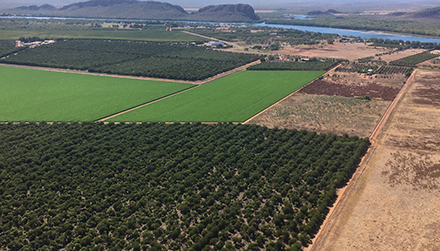The world’s largest Indian sandalwood producer has struck a deal that will see Santalum album exported from Western Australia’s Ord Valley and developed into new products for the booming Chinese traditional medicine market. Source: ABC Rural
Quintis signed a memorandum of understanding with China’s largest manufacturer of traditional medicines, Lanzhou Foci Pharmaceuticals, a state-owned company listed on the ShenZhen Stock Exchange.
The collaboration is thought to be the first of its kind for the sector, which accounts for more than a third of all pharmaceutical sales in China and has experienced significant growth during the coronavirus pandemic.
Quintis chief executive officer Richard Henfrey said the milestone came at a challenging time for some of its other key markets, which had seen the sandalwood producer pivot and diversify.
“We sell products into nine different customer segments,” he said.
“Some of those have been quite hard hit by COVID, like the fragrance industry … but aromatherapy, for example, is doing very well.
“What we’re discovering about sandalwood is that it’s about much more than just the oil.
“We’re increasingly selling wood products into the handicraft markets, the incense market, and the Chinese traditional medicine market as well.”
Mr Henfrey, who brings with him more than a decade of experience heading up popular vitamin company Blackmores, says he believes the traditional medicine, pharmaceutical and cosmetic markets will be the biggest growth industries for sandalwood over the next five years.
“The traditional Chinese medicine market is getting a lot of support politically in China — it’s seen as a very important part of the healthcare system,” he said.
“I believe there’s also a strong opportunity for sandalwood as an active ingredient in over-the-counter pharmaceuticals and therapeutic skincare products, as well cosmetics.
“The latter are industries where sandalwood doesn’t have a position in the market at all today.
“But we think the opportunity in those three industries is enough to soak up the growth that’s going to come in supply.”Mr Henfrey said it was a new era for Quintis, more than three years since the sandalwood giant had major contracts cancelled, entered a trading halt and fell into administration.
In October 2018 it recapitalised as a private company, resumed harvest operations and completed a product rebrand and leadership shuffle, all while defending multiple lawsuits and the attempted takeover of several Quintis-managed sandalwood plantations.
One year into the job Mr Henfrey is convinced there is a bright future ahead for Indian Sandalwood in northern Australia.
“There’s no doubt it’s been quite a rough ride,” he said.
“The business was recapitalised at the end of 2018 and we haven’t looked back since then.
“We’re now at the point where we get to reap the rewards … I feel very lucky to be in a position to deliver on the great vision that Quintis was founded with.”The deal with Lanzhou Foci Pharmaceuticals comes off the back of Quintis’ biggest ever commercial harvest in 2020, which saw more than 100 hectares go through their processing shed in Kununurra.
The harvest was across its 2004 Managed Investment Scheme plantation and trees owned by Quintis, although much of the MIS wood was bought back from growers by the sandalwood giant earlier this year.
From the storage shed in Kununurra, the exotic wood is trucked more than 3,500 kilometres south to the company’s facility at Mount Romance near Albany, which is home to world’s largest Sandalwood oil distillery.
“The quality of the wood is actually quite a bit higher than we’ve had in previous years [and] we’re getting some really good oil yields from that wood,” Mr Henfrey said.
“So, all the indications are good.”






